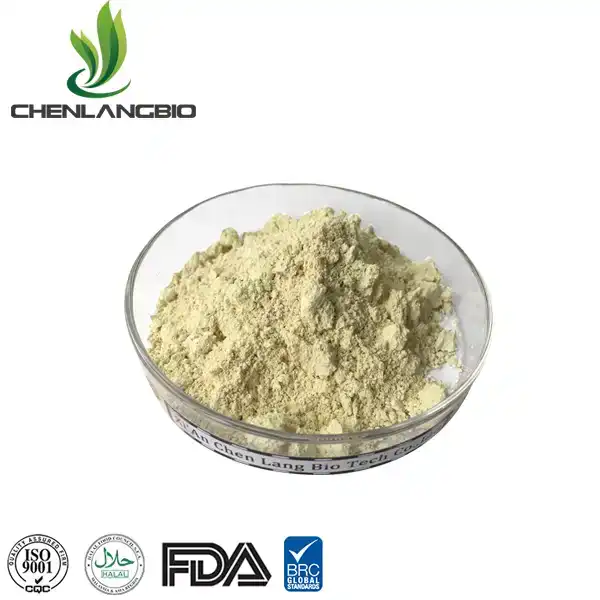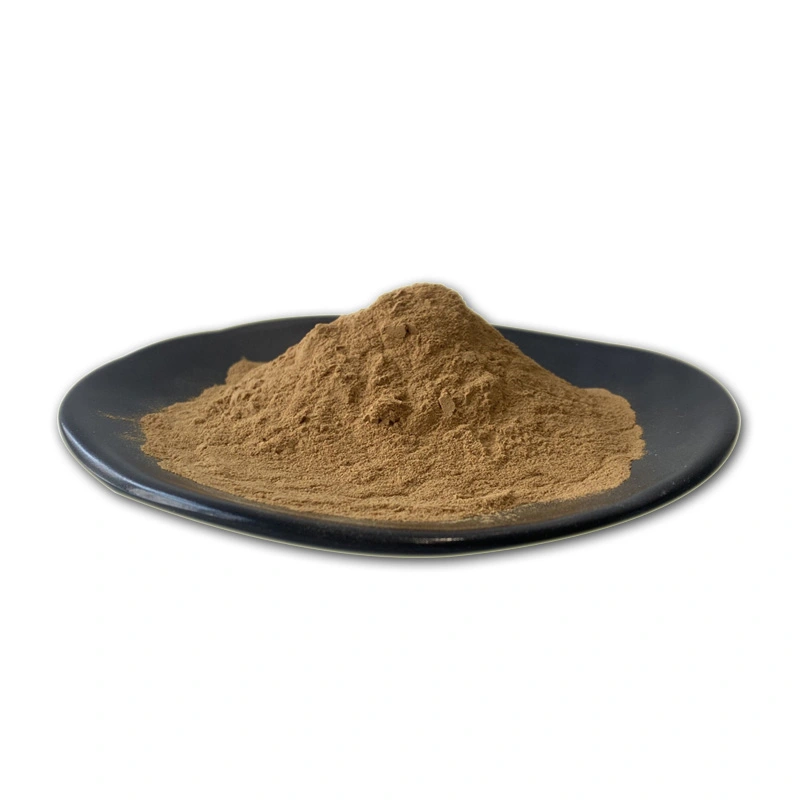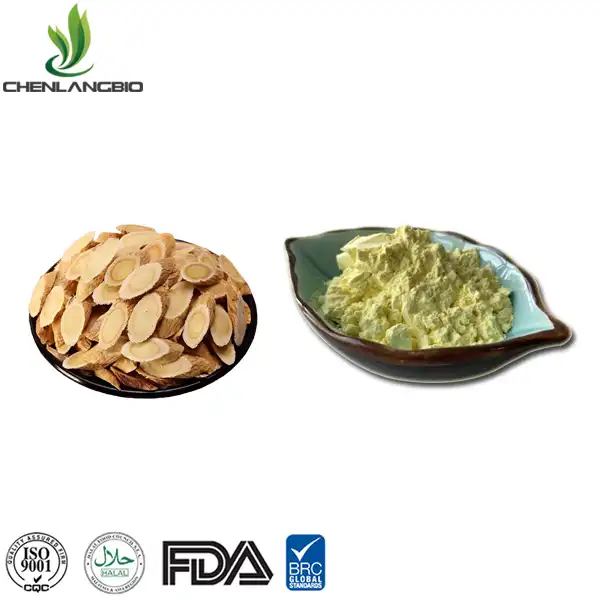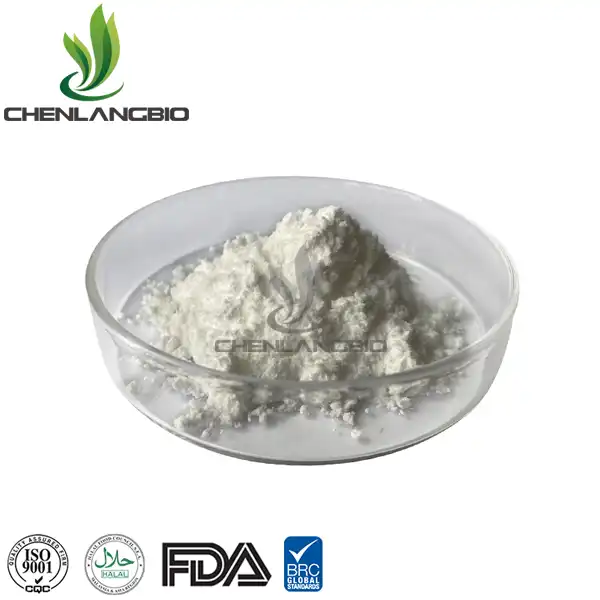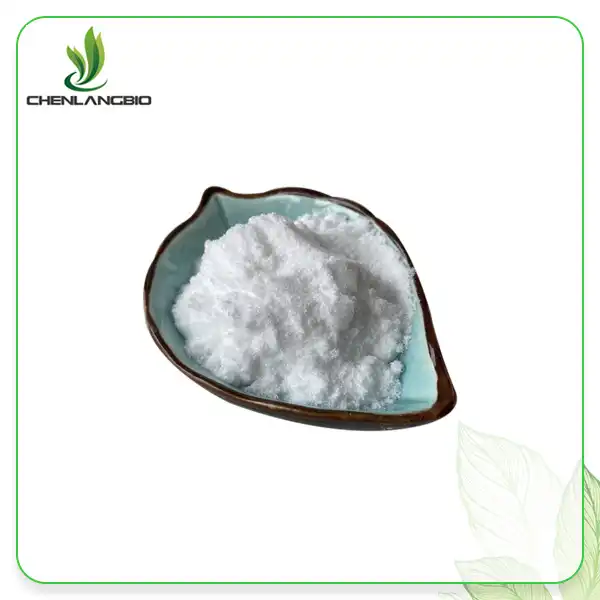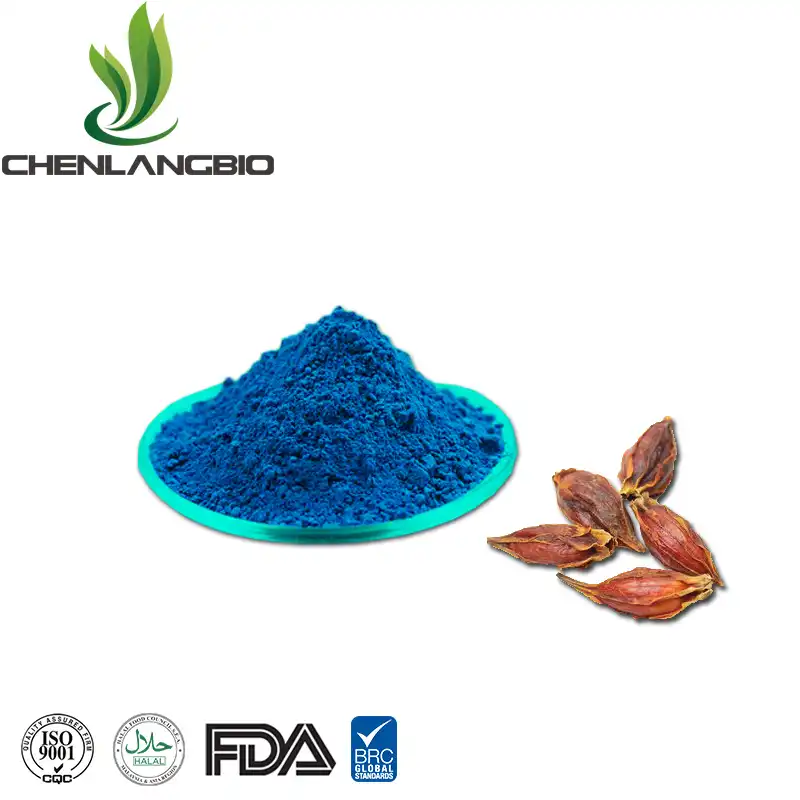What is Honokiol Good For?
2024-06-13 16:23:57
Honokiol, a natural compound extracted from the bark of the Magnolia officinalis tree, has been used in traditional Chinese medicine for centuries. It is renowned for its diverse health benefits, including anti-inflammatory, antioxidant, and neuroprotective properties. This blog explores the various uses of honokiol powder and its potential health benefits.
How Does Honokiol Help with Inflammation and Pain Relief?
What Are the Anti-Inflammatory Properties of Honokiol?
Honokiol is well-documented for its potent anti-inflammatory effects. It works by inhibiting the production of pro-inflammatory cytokines and reducing the activity of inflammatory enzymes. This makes honokiol effective in managing conditions characterized by chronic inflammation, such as arthritis and inflammatory bowel disease.
In studies, honokiol has shown significant promise in reducing inflammation in both in vitro and animal models. For instance, research indicates that honokiol can inhibit osteoclastogenesis, the process responsible for bone resorption in diseases like osteoporosis, without affecting the differentiation of osteoblasts, which are essential for bone formation. This balance is crucial for maintaining healthy bone metabolism and preventing bone-related diseases.
Additionally, honokiol's ability to mitigate inflammation extends to the brain. By inhibiting the overactivity of microglia, the brain's immune cells, honokiol helps protect against neuroinflammation, which is implicated in conditions such as Alzheimer's disease and multiple sclerosis.
Honokiol’s anti-inflammatory properties are attributed to its ability to suppress the nuclear factor kappa-light-chain-enhancer of activated B cells (NF-κB) pathway, a critical regulator of inflammatory responses. By targeting this pathway, honokiol reduces the expression of inflammatory genes and the production of inflammatory mediators, providing a comprehensive approach to inflammation control.
How Effective is Honokiol for Pain Management?
Honokiol's anti-inflammatory properties also contribute to its effectiveness in pain management. By reducing inflammation, honokiol helps alleviate pain associated with conditions like arthritis, muscle soreness, and even certain types of chronic pain. This has been observed in various studies where honokiol was able to reduce markers of inflammation and pain perception in animal models.
Moreover, honokiol has been shown to provide relief from neuropathic pain, which is pain caused by damage to the nervous system. Its neuroprotective properties help shield nerve cells from damage and reduce pain signaling, offering potential relief for patients with neuropathic conditions.
Studies indicate that honokiol can modulate the activity of pain receptors and pathways, including the transient receptor potential vanilloid (TRPV) channels, which play a significant role in pain sensation. By influencing these receptors, honokiol can reduce pain sensitivity and provide analgesic effects.
Furthermore, honokiol's impact on pain management extends to its ability to enhance endorphin release, the body's natural painkillers. This dual mechanism of reducing inflammation and boosting endorphin levels makes honokiol a promising natural alternative for pain relief.
Can Honokiol Improve Mental Health?
How Does Honokiol Affect Anxiety and Stress?
Honokiol is known for its calming and anxiolytic effects, making it a popular natural remedy for anxiety and stress. It acts on the GABA (gamma-aminobutyric acid) receptors in the brain, which are responsible for producing a calming effect on the nervous system. By enhancing the activity of GABA, honokiol helps reduce anxiety, promote relaxation, and improve overall mood.
Studies have shown that honokiol can significantly reduce anxiety-related behaviors in animal models. For example, honokiol increased the duration of non-rapid eye movement (NREM) sleep in mice, which is essential for reducing anxiety and improving sleep quality. This effect on sleep is particularly beneficial for individuals with anxiety disorders, as poor sleep often exacerbates anxiety symptoms.
Honokiol's anxiolytic properties are comparable to those of benzodiazepines, but without the associated side effects such as sedation and dependency. This makes honokiol a safer alternative for managing anxiety and stress.
Is Honokiol Effective for Treating Depression?
Honokiol has also demonstrated potential as an antidepressant. By modulating neurotransmitter levels, such as serotonin and noradrenaline, honokiol can help alleviate symptoms of depression. Low levels of these neurotransmitters are often linked to depressive disorders, and honokiol's ability to balance these chemicals can improve mood and cognitive function.
Research involving animal models has shown that honokiol can inhibit stress-induced decreases in serotonin levels and reduce depressive behaviors. Additionally, it has been found to normalize hypothalamic-pituitary-adrenal (HPA) axis hyperactivity, which is commonly disrupted in individuals with depression.
Honokiol's antidepressant effects are also linked to its neuroprotective properties. By reducing oxidative stress and inflammation in the brain, honokiol helps protect neural circuits and improve neuroplasticity, which are crucial for maintaining mental health and combating depression.
Furthermore, honokiol's ability to enhance brain-derived neurotrophic factor (BDNF) levels supports its role in promoting brain health and alleviating depression. BDNF is essential for the growth and survival of neurons, and its increased expression can help reverse the damage caused by chronic stress and depression.
What Are the Benefits of Honokiol for Cancer Treatment?
How Does Honokiol Support Cancer Therapy?
Honokiol has gained attention for its potential anticancer properties. It has been shown to induce apoptosis (programmed cell death) and inhibit angiogenesis (the formation of new blood vessels that feed tumors), thereby limiting the growth and spread of cancer cells.
In various studies, honokiol has demonstrated effectiveness against a range of cancers, including breast, prostate, lung, and ovarian cancers. It works through multiple mechanisms, such as disrupting mitochondrial function, increasing oxidative stress within cancer cells, and modulating key signaling pathways involved in cell proliferation and survival.
Honokiol's ability to target multiple cancer pathways makes it a promising candidate for cancer therapy. It can interfere with the cell cycle, induce autophagy (self-digestion of cellular components), and inhibit metastasis, which is the spread of cancer cells to other parts of the body.
Can Honokiol Enhance the Efficacy of Conventional Cancer Treatments?
Honokiol's ability to enhance the efficacy of conventional cancer treatments is particularly noteworthy. When used in combination with chemotherapy or radiation therapy, honokiol has been shown to improve treatment outcomes by sensitizing cancer cells to these treatments and reducing their resistance.
For instance, studies have found that honokiol can enhance the pro-apoptotic activity of chemotherapeutic agents in drug-resistant cancer cell lines. This synergistic effect can lead to better control of tumor growth and potentially improve patient prognosis.
Moreover, honokiol's antioxidant properties help mitigate the side effects of chemotherapy and radiation therapy. By reducing oxidative stress and inflammation, honokiol can protect healthy cells from damage, improve patient tolerance to treatment, and enhance overall quality of life.
Honokiol's ability to modulate the tumor microenvironment further supports its role in cancer therapy. By inhibiting the secretion of pro-tumorigenic factors and promoting immune cell infiltration, honokiol can create a hostile environment for cancer cells, enhancing the effectiveness of conventional treatments.
Additionally, honokiol's potential to inhibit cancer stem cells, which are responsible for tumor initiation and recurrence, highlights its importance in preventing cancer relapse and improving long-term treatment outcomes.
Conclusion
Honokiol, derived from Magnolia officinalis, offers a broad spectrum of health benefits, from anti-inflammatory and pain-relief properties to potential mental health improvements and cancer-fighting capabilities. As research continues to explore its full therapeutic potential, honokiol could become an increasingly important natural remedy in both clinical and holistic health practices.
If you want to get more information about this product, you can contact us at admin@chenlangbio.com for more information.
References
Pure Honokiol: A Powerful Tool for Health – ecoNugenics
Magnolia Bark Extract Uses, Benefits & Dosage - Drugs.com
Magnolia Bark Extract benefits, dosage, and side effects - Examine
8 Health Benefits of Magnolia Bark + Dosage, Side Effects - SelfDecode
Magnolia Bark: Benefits, Usage, and Side Effects - Healthline
Honokiol - Wikipedia
Honokiol: A review of its pharmacological potential and therapeutic applications – ScienceDirect
Neuropharmacological potential of honokiol and its derivatives – BMC Complementary Medicine and Therapies
This Hidden Oatmeal Benefit Could Transform Your Heart Health – The Healthy
Avenanthramide supplementation reduces eccentric exercise-induced inflammation – Nutrition Journal
Send Inquiry
Related Industry Knowledge
- Sesamin Powder Benefits: Unlocking Natural Health
- Is Kopexil Effective for Hair Growth?
- Pro-xylane Powder: A Guide for Beginners
- How Can Pure Fisetin Enhance Cognitive Function and Support Brain Health
- How Does Loratadine Affect the Brain
- What Are the Benefits of Alpha-GPC Bodybuilding
- Why We Love Pure Natural Quercetin
- External Standard Method Fisetin Powder Factory
- Revitalize Your Eyes with Marigold Extract Natural Solution for Eye Health
- How Much EGCG in Green Tea Extract


